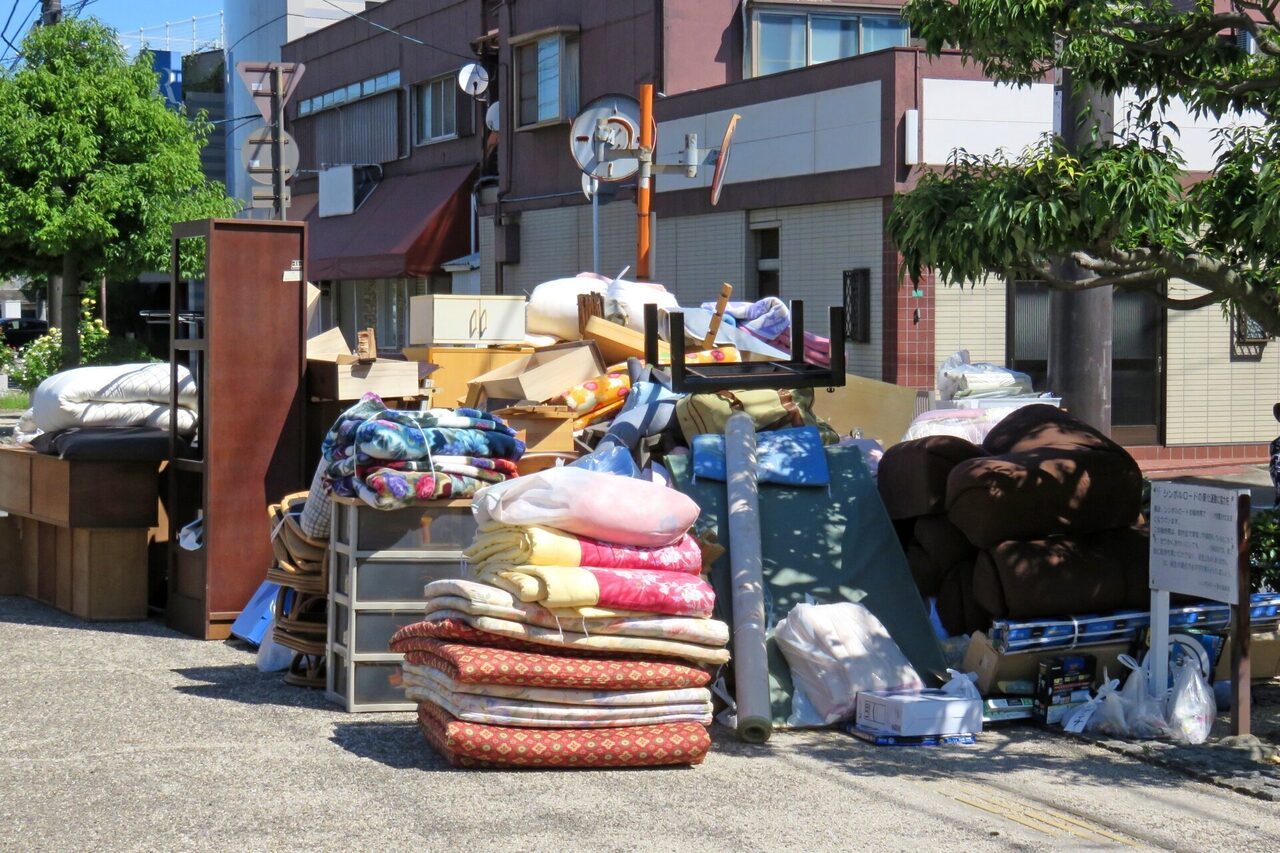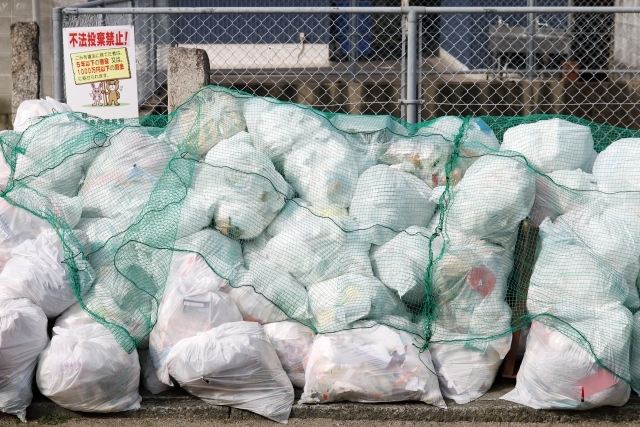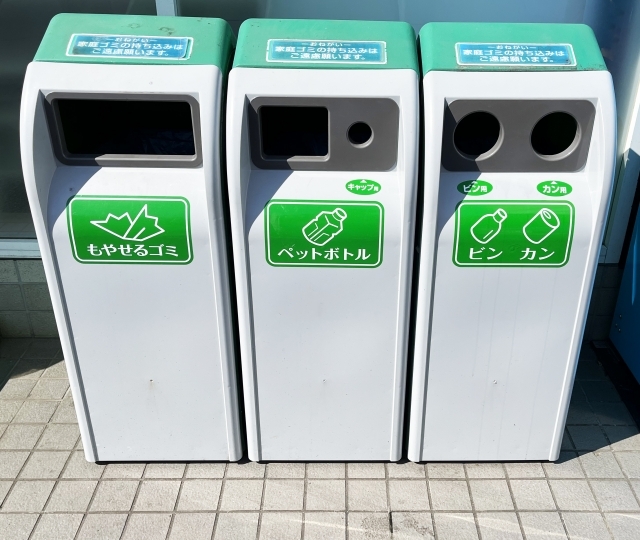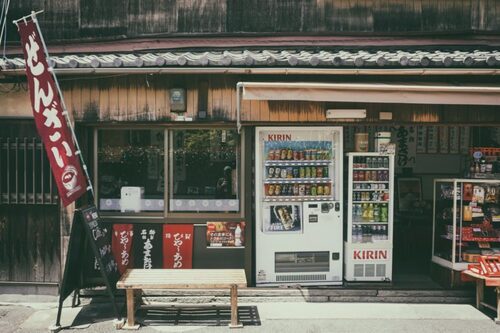MUSUBI: Waste Management in Japan

Know the rules
If you are new to Japan, it is important to know how to throw away your trash properly. Each area has its own rules, but I want to share some general guidelines. First and foremost you have to know that there are different categories of garbage. These include:
Burnable items: food waste, paper, small wood items, and other things that can, well, burn. Typically, burnable garbage is collected twice a week.
Non-burnable items: metals, glass, ceramics, and other things that do not burn. Non-burnable garbage is usually collected once or twice a month.
Recyclable items: Cans and glass bottles. There are also PET bottles, or plastic drink bottles. Also included are Paper and Cardboard: Newspapers, magazines, and cardboard boxes. Recyclables are typically collected once a week for each type.
Large items: This includes furniture, large appliances, and other big items. For large items, (sodai gomi) you need to schedule a pickup with your local ward office or use their website.

Know what to do
I would like to share my experience. When I first came to Japan, sorting my garbage was a bit of a puzzle. I had to change my routine, which was difficult at first. But I managed to adapt. Each area in Japan has different rules for garbage disposal. I checked my local government website.
I also had additional help from Borderlink, who provided us with all the necessary rules about the garbage system. They also gave us a booklet on how to live in Japan, which was quite helpful. Additionally, an instruction chart about the garbage collection schedules was pasted on the wall of our apartments. Although the chart was in Japanese, I translated it to understand the details better. I learned how to separate burnables, non-burnables, and recyclable items.
I use different bags for each type, as required. Some areas require specific bags for different types of garbage. These bags are often coloured and can be bought at local stores. I made sure to use the correct ones.
Besides knowing the schedules it's also very important to keep the recycling process clean and prevent odors that may attract animals. I washed cans, bottles, and PET bottles before recycling them.
If you want to live in Japan, you have make it a habit to put your garbage out on the correct day and at the correct time. Usually, this means placing it outside in the morning, before a certain hour.

Know the benefits
Environmental issues such as global warming, caused by the combustion of fossil fuels and deforestation, has led to an increase in Earth's temperatures. Japan's intricate waste disposal system plays a crucial role in addressing this issue.
Through the meticulous segregation of waste into burnable, non-burnable, and recyclable categories, Japan minimizes landfill waste and methane emissions. Cutting-edge recycling and waste-to-energy technologies transform waste into energy, reducing the dependency on fossil fuels. This approach conserves resources and lowers carbon dioxide emissions, making a significant impact in the battle against global warming. It sets a benchmark for other nations to follow.
By adhering to the guidelines of Japan's waste disposal system, we can actively contribute to combating global warming. This system not only helps in reducing landfill waste and emissions, but also serves as a practical way for individuals to play their part in averting global warming's impacts.
Japan's garbage disposal system is highly efficient and environmentally friendly. By carefully sorting waste, recycling thoroughly, and using waste-to-energy technology, Japan helps reduce its impact on global warming.
However, ongoing efforts and international cooperation are needed to improve waste management and fight climate change. Other countries can learn from Japan's example to help create a sustainable future and reduce global warming. Adapting to the garbage system in Japan took some effort, but it was worth it. By following these simple guidelines, I was able to manage my garbage effectively and contribute to a clean, organized community.
Photo Credits:
Top photo: kakkiko
Additional photos by kscz58ynk and 港303
All other content (text) created by the original author and © 2024 MUSUBI by Borderlink
WRITER

Naz R.
From Pakistan
Now experiencing their first year in Japan!
RECOMMENDED
-

Embracing the Healthy Lifestyle of Japan
Nestled amidst the bustling streets and tranquil landscapes of Japan lies a treasure trove of wisdom and prac... -

Japanese Cuisine - A Culinary Cruise
Are you ready to embark on a culinary adventure of a lifetime? Look no further than Japan,where the food is not j... -

The Nation of Hydration
Photo by Daniel Tseng



